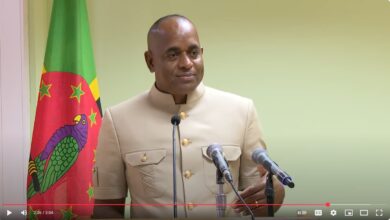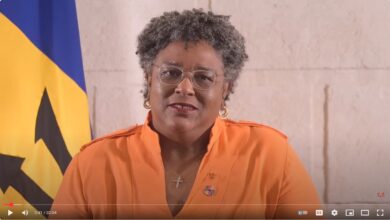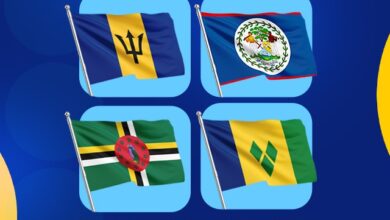Preparations are moving apace at various levels within the Caribbean Community to institutionalize as fast as possible the Single Market and Economy (SME) in this regard, Guyana is no exception.
The target year has been set for sometime before year 2005.
We are a mere two years away from this momentous event which will have a direct and indirect impact on the daily lives of each and every Guyanese. In fact, it would be no wild assertion to state that the Single Market and Economy is “around the corner”.
Nine Protocols have already been agreed to by Heads of Government of the Caribbean Community. They are:
- Protocol One: New Institutional Structures of the Community
- Protocol Two: Rights of Establishment, Provision of Services and Movement of Capital
- Protocol Three: Industrial Policy
- Protocol Four: Trade Policy
- Protocol Five: Agricultural Policy
- Protocol Six: Transport Policy
- Protocol Seven: Disadvantaged Countries, Regions and Sectors
- Protocol Eight: Competition Policy
- Protocol Nine: Disputes Settlement
Guyana has signed and ratified all nine Protocols
This being the case, it is becoming increasingly urgent to begin a country-wide, sustained public information and education campaign sooner rather than later.
This National summit has been convened with a view to jump starting a consultative engagement involving the widest cross section of the Guyanese community
The CSME is “our thing”. It is a reality that is soon to touch our daily lives. It is a higher form of regional integration which, if properly nurtured and guided can prove to be a major turning point in the lives of all Guyanese.
Coincidentally, the date 2005 is the target year when the FTAA is expected to “kick-in”. Three years later, the Economic Partnership Agreement between the European Union and CARIFORUM countries is expected to come on stream. Moreover, the multilateral trade negotiations of the WTO is scheduled to conclude by 2005.
The CSME will play a major role in determining the economic and social development of Guyana. A microcosm of what will happen is to be found in the modus operandi of the Caricom Common Market Council. In other words, just as the Common Market Council has established rules for the free trade of goods and services in the Region, in the same way, the Single Market and Economy will have regulations and procedures that originate from the nine protocols mentioned earlier.
That is why it is important for every social strata of our population understand what the Single Market and Economy is all about.
Our workers, manufacturers, farmers, businessmen, manufacturers, civil servants, academics, intellectuals, journalists, religious leaders, lawmen and students must all have a good grasp and a first class understanding of these protocols. It is vital that they acquaint themselves with those specific protocols which will have a direct relationship with their everyday activities. This is necessary if Guyana is to take advantage of the challenges and opportunities inherent in the CSME.
But there are two fundamental problems that are yet to be resolved. The first has to do with the harmonization of fiscal systems and the convertibility of currencies
Though these measures are desirable, there are a number of factors of an economic and fiscal nature which makes them highly improbably at this point in time.
The other vexed question has to do with hassle free travel and free movement of skills within the Caribbean Community. At a Conference of Heads in the Bahamas in 2002, the question was asked;
“How can the market and the economy be single and unified but the workers still trapped in their territorial homeland base”?
Guyana is unreservedly committed to the establishment of the Single Market and Economy. This is a long standing position of this country irrespective of the Government of the day.
In this regard, let us all heed the following words of advice of the Caricom Heads of Government: “The starting point for effectiveness of the CSME requires a shift in our mind-set to a focus which looks to the entire Region from one which regards only the country in which we reside as being available to each of us. It therefore cannot be business as usual”.
In conclusion, I would like to take this opportunity to express the Government of Guyana’s deepest gratitude and appreciation to USAID, and Mr. Mike Sarhan personally for the generous assistance provided to realize this activity.
I thank you.





